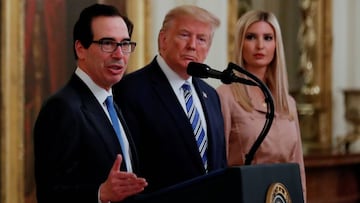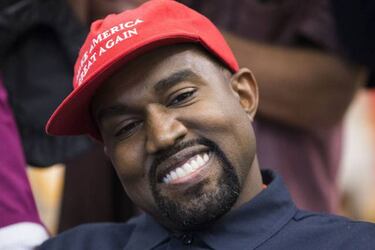Paycheck Protection Program (PPP): what companies got loans?
The Treasury Department has published a list of the companies that have benefitted from the Paycheck Protection Program, with some surprising names included among them.

As the Paycheck Protection Program was rolled out by the Treasury Department, millions of small businesses and non-profit organisations across the United States breathed somewhat of a sigh of relief. The scheme was designed to help needy enterprises through the financial turmoil during the coronavirus pandemic, but a number of larger, wealthier establishments also received some additional capital.
Follow all the latest coronavirus-related news in the US with our live blog
650,000 out of five million named as recipients of PPP money
Those many small businesses that received taxpayers money will be extremely grateful for the aid but eyes have been drawn to the bigger names on the list of companies that were able to take a forgivable 1% loan. By the end of June, there were around five million companies to have benefited - at a value of $521 billion - although only those that received over $150,000 were named by the Treasury Department on Monday, of which there were 650,000.
- What Dr Fauci has said about the hotspots and reopening
- Stimulus check: what changes will there be between first and second payment?
- Supreme Court rules Trump does not have complete immunity
- Second stimulus check: economists push for regular payments
- Unemployment benefits: what states are extending them?
- $600 unemployment benefits boost: what did Mnuchin say?
Ice Cube’s professional basketball league was one of those named, while Kanye West - the rapper who recently suggested he would throw his hat into the presidential election ring - took advantage of the program through his clothing range, Yeezy. Also on the list were various political groups, West Virginian billionaire governor Jim Justice, the Girl Scouts, financial giants Rosenblatt Securities, and artist Jeff Koons, who was approved for a loan up to $2 million. Last year he auctioned off his ‘Rabbit’ for $91 million.
Another recipient that caught the eye of those scanning the government’s list was Muy Brands Inc, a large franchisee of restaurant chains Pizza Hut, Wendy’s and Taco Bell. Their CEO, James Bodenstedt, is known to donate large sums to President Donald Trump and from this scheme he took loans between $15-30 million.
PPP release reaction
The release of the information was, on the whole, greeted positively, with Chuck Schemer, the Senate Democratic leader, calling it a “good start” although he pointed to the fact that it should have happened earlier and that it being published was thanks to his party’s pressure. He said that continued transparency was needed to “ensure that these taxpayer dollars went where Congress intended — to the truly small and underbanked small businesses."

Florida Republican, Senator Marco Rubio, who is also chairman of the Small Business Committee that developed the program, said that it was "a historic lifeline" for small businesses at this difficult time.
This so called ‘transparency’, however, has come under scrutiny as there is a refusal to release the information for those under $150,000. That accounts for over 80% of the total number of recipients. Numerous high-profile religious organisations were entitled to benefit from the scheme, including the likes of First Baptist Dallas, a strong Trump-Pence supporter, which took a reported loan of somewhere between $2-$5 million to help it through this period.
Industry breakdown
Related stories
Some experts have highlighted that the loans have not been getting to the industries and businesses that really needed them. For example, we know the pain that the hotels, restaurants and bars have experienced, but they were only fifth on the list of industries receiving PPP loans. Ahead of them were health care, professional and business services, construction and manufacturing industries.
What is clear is that although it was important for the information to be released, much of the detail is still missing, including that behind minority-owned businesses, gender, race and demographics. Many are pushing to get more transparency over the coming weeks to confirm if, indeed, American taxpayers’ money is going to the people that truly need the support.

